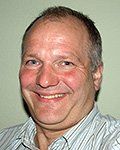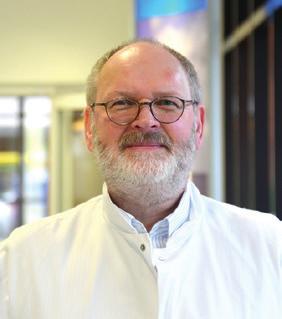about us
Our organization
Our goals
Our board

1st Chair

2nd Chairman

finance

press secretary

secretary

Medical Advisory Board

honorary member
Our statute
§ 1
Name and registered office of the association, financial year
The association bears the name: Förderinitiative ickes Kind eV, abbreviated: FinkK eV.
The association is entered in the register of associations of the District Court of Oberhausen.
The association is based in Oberhausen/ Rhineland.
The financial year is the calendar year.
§ 2
purpose of the association
(1) The purpose of the funding initiative for sick children is
a) to promote and support the appropriate care and nursing of children in the clinic for children and young people of the Evangelical Hospital Oberhausen (hereinafter: EKO) in every possible way, insofar as the clinic for children and young people of the EKO has its own means for this not suffice;
b) to optimally improve the conditions for sick children, their parents, nursing staff and doctors through material support with the aim of successful healing;
c) if the funds of the EKO or third-party funds are not available or are not sufficient to enable and expand the scientific study of pediatric and adolescent medicine and to promote research projects of the clinic for children and adolescents of the EKO;
d) together with the clinic for children and young people of the EKO, the health awareness of broad sections of the population in the catchment area of the Ev. to awaken and maintain the hospital. This applies in particular to the living conditions of children and adolescents in the region, namely children with chronic diseases (bronchial asthma, neurodermatitis, chronic inflammatory bowel diseases, diabetes mellitus), children with congenital heart defects and critically ill children in intensive care. Prevention is of paramount importance.
e) The purpose of the statute is realized in particular through contributions to the child-friendly redesign of the infirmaries, support for children and caring parents in the hospital, holding of lectures and further training events, targeted procurement of medical equipment, insofar as the funds of the Evangelical Hospital are not sufficient for this or not determined are.
(2) The funding initiative sick child eV pursues exclusively and directly charitable and charitable purposes within the meaning of the section "tax-privileged purposes" of the tax code.
(3) The association is selflessly active, it does not pursue any commercial purposes.
(4) Funds from the funding initiative for sick children may only be used for statutory purposes.
(5) Members of the association do not receive any grants from the funds of the association. No person may be favored by expenses that are alien to the purpose of the association or by disproportionately high remuneration. Members of the association may not make a profit, nor do they have any claim to the association's assets.
§ 3
membership
(1) The funding initiative sick child eV is a voluntary association of legal or natural persons.
Membership can be purchased:
a) natural persons b) associations and companies c) public corporations d) social and economic organisations.
Membership should be applied for in writing. The Executive Board decides on admission by simple majority vote. The rejection of an application for admission does not require a reason.
(2) The resignation takes place by means of a written declaration to the board. It is only permitted at the end of a financial year. The declaration of resignation must be received by the Management Board no later than three months before the end of the financial year at the end of which the resignation is to take effect.
(3) The exclusion of a member for an important reason can be declared by a simple majority decision of the Executive Board. An important reason is given in particular if the member acts contrary to the purpose or the interests of the association to a particular extent or if this member behaves in a way that is harmful to the association inside and outside the FinkKe.V. association.
(4) A member can be expelled if the member is more than three months in arrears with his contribution payments for the board despite a reminder.
(5) The exclusion can be temporary or permanent.
(6) An objection to the exclusion decision can be raised within one month after delivery of the notification. The General Assembly will decide on the objection at its next meeting.
(7) Membership in the Förderinitiative ickes Kind eV ends through death, resignation, lapse of legal capacity in legal entities, dissolution of partnerships, expulsion or dissolution of the association.
§ 4
organs
Organs of the funding initiative sick child eV are the general meeting and the board. The board of directors can decide to set up further organs.
§ 5
Board
(1) The board consists of the following members:
a.the chairpersonb. the second chairman c. the secretary. the press officer. the treasurer two members delegated by the Medical Advisory Board
(2) The persons named under paragraph 1a)-e) are elected by the general assembly. The term of office is 4 years. Re-election is permissible.
(3) The members of the Executive Board work on a voluntary basis. The board of directors manages the association's business and invites you to the general meeting (§6, 1ff.). It decides on the use of the association's funds within the framework of the association's statutes. It decides on the admission and exclusion of members. The board has a quorum if at least four board members are present. The resolutions of the Executive Board are passed with a simple majority. The resolutions of the Executive Board are passed with a simple majority. Minutes must be kept of board meetings.
(4) The chairperson is the executive board within the meaning of Section 26 of the German Civil Code. For all decisions on long-term obligations of the FinkK eV association and for all financial decisions that exceed the amount of EURO 1000.-, the approval of the management of the medical advisory board (§ 5.6) is required.
(5) In the event of the resignation of the chairperson, a general meeting must be convened immediately to elect a new board member. In the meantime, the second chairman, or in the event of his resignation the secretary, will take over the provisional chairmanship of the association.
(6) A medical advisory board is formed by the board of directors to provide support and advice. The head physician of the EKO clinic for children and adolescents and one of his deputy physicians belong to the medical advisory board as permanent/permanent members. The chief doctor of the clinic for children and
Adolescents can delegate part of their duties permanently to one of their medical deputies.
(7) The Medical Advisory Board delegates two of its members to the Executive Board.
(8) The Medical Advisory Board can appoint additional members from medical professionals. These members of the medical advisory board are confirmed by the board and can be dismissed by the board.
(9) The areas of responsibility of the board members are specified in more detail by the rules of procedure of the Förderinitiative ickes Kind eV.
§ 6
General Assembly
(1) The general assembly is convened in writing by the chairperson with notification of the agenda with an invitation period of no less than 4 weeks. The meeting is chaired by the chairperson or another board member nominated by the chairperson. The General Assembly takes place at least once a year.
(2) It is to be convened by the chairperson if at least 20% of the members request this.
The General Assembly is particularly responsible for:
a) Receipt of the annual report and the annual accounts from the Board of Directors and their discharge;
b) Election and dismissal of the board;
c) Election of the two auditors;
d) Determination of the minimum amount of annual contributions;
e) Decision on the objection to a member exclusion decided by the board;
f) Resolution on changes to the articles of association and the dissolution of the association.
(3) The General Assembly passes resolutions with a simple majority of the valid votes cast, unless otherwise provided in the Articles of Association. Every general meeting convened in accordance with the articles of association has a quorum regardless of the number of members present, provided that at least four board members are present. Proposals for changes to the agenda can be submitted during the four-week notice period up to one week before the meeting by both/the chairpersons. Minutes must be taken of the resolutions of the general meeting, which must be signed by the chairman of the meeting and the minute taker.
§ 7
contributions and donations
(1) The funding initiative sick child eV finances its funding measures through membership fees and donations from its members or third parties.
(2) It hands over its funding earmarked to the management of the EKO Clinic for Children and Adolescents upon written request. Evidence of the use of funds must be provided. The head physician of the clinic for children and adolescents of the EKO or the medical deputy appointed by the head physician is an auxiliary person within the meaning of the non-profit ordinance in the most recent version.
(3) The members have to pay an annual fee, the amount of which is left to the individual member's self-assessment, but at least in the amount of the fee determined by the general assembly. The fee is due at the start of membership and in subsequent years by January 31st.
(4) The tax deductibility of contributions and donations is certified.
§ 8
Amendment of the articles of association and dissolution of the association
(1) Resolutions on changes to the statutes and the dissolution of the association FinkK eV can only be made in a general meeting with a majority of 2/3 of the members present.
(2) Resolutions on the points mentioned in paragraph 1 can only be passed if they were included in the agenda of the invitation sent in due time.
(3) In the event of the dissolution of the association, the liquidation is carried out by the board of directors, unless the general meeting decides otherwise with a simple majority.
(4) In the event of the dissolution or repeal of the Sick Child Funding Initiative or if its previous purpose no longer applies, the association's assets will go to the EKO Funding Association (Society of Friends and Sponsors of the Evangelical Hospital Oberhausen eV, Virchowstr. 20, 46047 Oberhausen), which will directly and to be used exclusively for charitable purposes.
§ 9
Severability Clause
Should provisions of these statutes of the Förderinitiative ickes Kind eV or a future provision included in them be wholly or partially invalid or unfeasible or later lose their legal validity or feasibility, the validity of the remaining provisions of the statutes shall not be affected.
The same applies if it should turn out that these articles of association contain a regulatory gap. Instead of the ineffective or unenforceable provisions or to fill the gap, an appropriate regulation shall apply which - as far as legally possible - comes closest to the meaning and purpose of the articles of association.
This also applies if the ineffectiveness of this provision is based, for example, on a measure of performance or time (deadline/deadline) prescribed in the articles of association: a legally permissible measure of performance or time (deadline/deadline) that comes as close as possible to the desired are deemed to be agreed.








